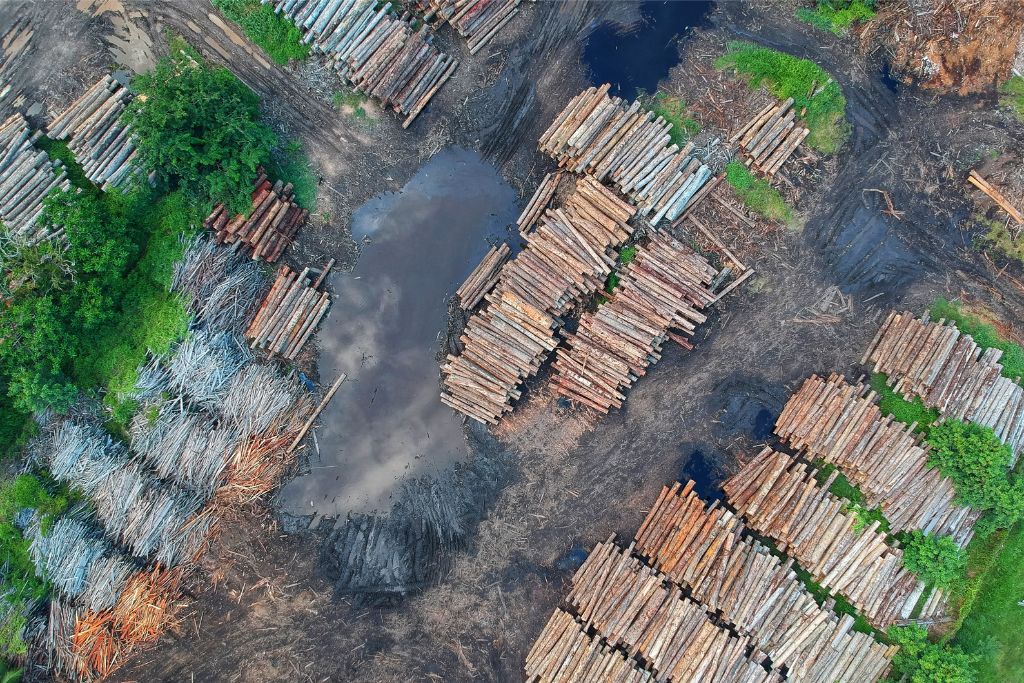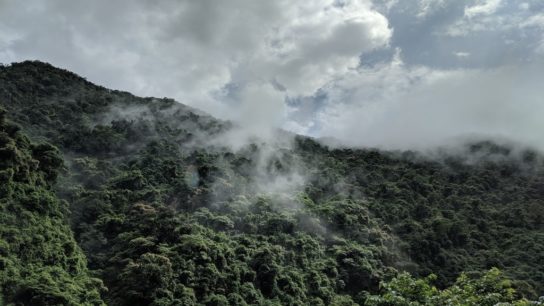On Thursday, ClientEarth filed a legal complaint against agricultural giant Cargill to stop environmental destruction and human rights failings.
—
ClientEarth has filed a legal complaint against US-based agricultural giant Cargill over its failure to adequately deal with its contribution to soy-driven deforestation and human rights violations in Brazil.
The complaint is the first time the company – the largest privately held firm in the United States with annual revenue of $165 billion – will face legal action in the US related to its deforestation footprint in the Amazon rainforest, Atlantic Forest and Cerrado savanna.
The environmental legal non-profit alleges that Cargill is not properly monitoring vast quantities of soy it trades, handles at its ports, or ships to global markets to identify and eliminate links to deforestation and human rights abuses, breaching its legal due diligence responsibilities.
This is despite a string of reports documenting the company’s role in driving environmental destruction in Brazil’s vulnerable ecosystems, as well as rights violations of Indigenous, Afro-Brazilian, and other forest-dependent communities.
ClientEarth has triggered the complaints procedure in the US under the guidelines of the Organisation for Economic Cooperation and Development (OECD), an international set of recommendations for responsible business conduct.
Laura Dowley, ClientEarth lawyer, said: “The rapid expansion of soy production for animal feed worldwide is pushing Brazil’s vulnerable rainforests and savannas dangerously close to tipping points they may never recover from, while putting the communities that depend on them in danger.
“As one of the largest soy traders sourcing from Brazil, Cargill should be leading the world’s best practice to stop soy linked to deforestation and human rights abuses from flooding the global food market.
“Instead, its poor due diligence raises the risk that the meat sold in supermarkets across the world is raised on so-called ‘dirty’ soy. We believe that this breaches the international code on responsible business conduct.”
Flawed Environmental Due Diligence
The Amazon rainforest, Atlantic Forest and Cerrado savanna are biodiversity hotspots and critical carbon sinks. Indigenous Peoples have been shown to be their best guardians and central to efforts to protect and restore these ecosystems in order to avoid further nature loss and fight dangerous climate change.
However, with the rapid increase in agriculture-driven deforestation, the Amazon is approaching a tipping point, after which scientists say the rainforest will turn into dry grassland, emitting vast amounts of carbon dioxide. Meanwhile, almost half the Cerrado has already been lost.
Destruction of large areas of the Amazon has been closely linked to the opening of Cargill’s controversial trading port in Santarém in the Northern state of Para in 2003, which facilitated exports out of the region and opened up vast areas of forest to soy production. The company is planning to build a large new port downstream in Abaetetuba.
ClientEarth has reviewed Cargill’s public policies and reporting documents, and claims they reveal deficiencies in its due diligence processes. Cargill says its policies include sophisticated monitoring, verification and reporting systems to end deforestation related to soy production in its supply chain. It has also made a commitment to being deforestation-free in the Amazon and Cerrado by 2025.
Deficiencies identified by ClientEarth include that Cargill does not appear to conduct:
- Proper environmental due diligence on soy bought from third-party traders, as opposed to directly from farmers, which makes up 42% of all Brazilian soy it purchases;
- Any environmental due diligence on soy owned by other companies that passes through its ports;
- Any environmental due diligence for indirect land use change;
- Proper environmental due diligence on soy sourced from the Cerrado savanna, despite the massive rate of deforestation there and the biome’s environmental importance; nor,
- Any due diligence for soy sourced from the Brazilian Atlantic Forest – a global biodiversity hotspot and an important region for conservation.
The legal non-profit argues that Cargill should be conducting enhanced due diligence in all of the above circumstances given the scale of the risk and the company’s extensive resources as the largest private US company.
Dowley added: “When you consider the huge resources Cargill has at its disposal and the critical state of the Amazon, Atlantic Forest and Cerrado, to not carry out deforestation checks on large parts of its extensive supply chain and soy operations is inexcusable. Cargill already has the know-how to do due diligence properly – it must start urgently putting it into practice.”
Human Rights Failures
Importantly the complaint alleges that Cargill does not appear to have adequate policies and systems in place to address human rights impacts related to its soy operations in Brazil, even though it has been linked to cases of rights violations.
The complaint cites examples of the socio-environmental harms suffered as a result of the construction and operation of the company’s Santarém port, including forced displacement and violence against land defenders in the area of influence of the trading hub.
It also details how communities’ traditional ways of living and interacting with land are being destroyed by deforestation and land conversion as the environment they rely on is stripped, while pesticides contamination related to soy farming is harming peoples’ health.
Incoming Laws and Regulations
ClientEarth lawyers also say that Cargill strengthening its due diligence processes in compliance with the OECD Guidelines is in its best interests as more jurisdictions move to make enhanced due diligence mandatory.
That includes the EU’s new deforestation law – as well as similar proposed laws and regulations in the US and UK that, if adopted, will also impose new environmental due diligence obligations on companies.
Dowley added: “The legal landscape is moving quickly. Governments, regulators, the financial sector, and consumers are all waking up to companies’ role in the destruction of nature. Bolstering its deforestation and human rights due diligence processes will help Cargill get on the front foot in the face of incoming regulation to reduce corporations’ negative impact on people and planet.”
You might also like: ClientEarth Sues Shell Board Over ‘Flawed’ Risk Management Strategy In World First Climate Lawsuit


















